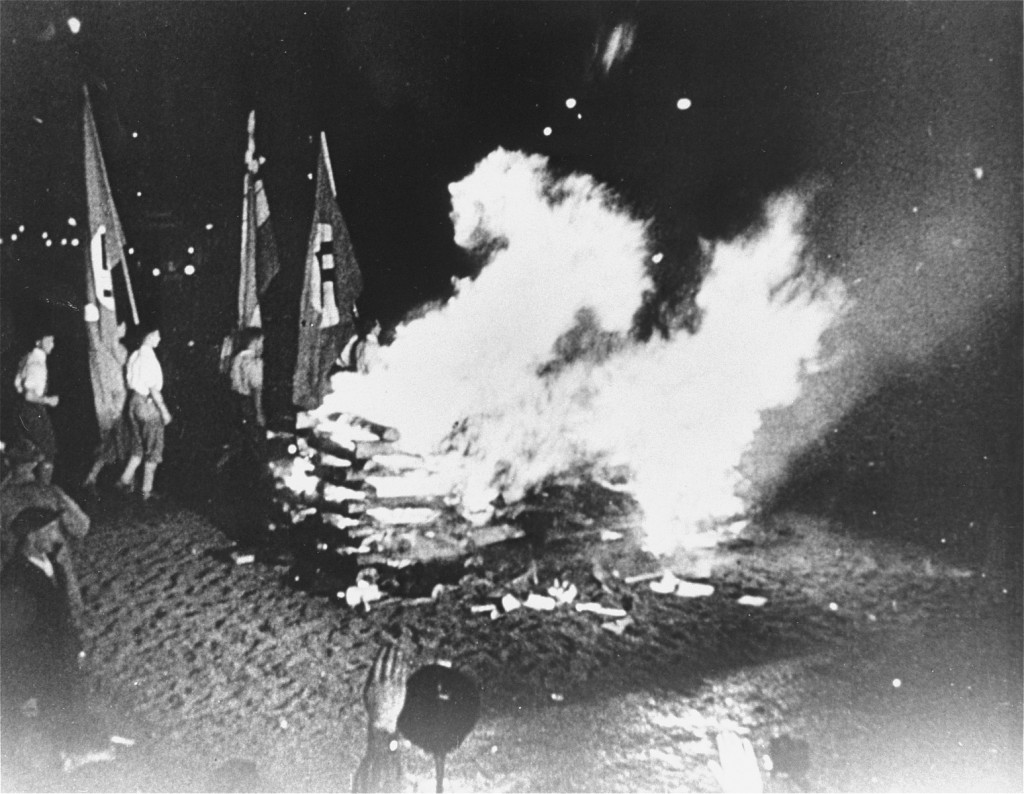
Ernst Gläser
In 1933, Nazi students at more than 30 German universities pillaged libraries in search of books they considered to be "un-German." Among the literary and political writings they threw into the flames were the works of Ernst Gläser.
Excerpt
Nobody asked us what we [the children] thought. The war belonged to the adults, we were feeling left out and lonely. We believed in nothing, but we did everything. We had known for a while that the war was a terrible disease, since we saw how everyone attempted to avoid it. Even the soldiers at the front line were happy if they were wounded.
—Jahrgang 1902 (Class of 1902), Ernst Gläser, 1928
Fire Oath
"Fire oaths" were statements to be read as books were tossed to the flames. The German Student Association sent out a circular containing these statements before the book burnings. The fire oaths then accompanied the burning of works written by the individual authors named in the statements.
Against decadence and moral decay
For discipline and decency in family and state
Heinrich Mann, Ernst Glaeser, and Erich Kästner
Which of Ernst Gläser's Works were Burned?
All works published before May 1933
Who was Ernst Gläser?
Ernst Gläser (1902-1963) began his literary career as a dramatist and journalist. His work, including the antiwar novel Jahrgang 1902 (Class of 1902), earned him a prominent place among Social Democratic authors. He also attended the Second International Conference of Revolutionary Writers in the Ukraine in 1930 and collaborated on a book highly favorable to the Soviets.
A year after the Nazis burned his books, which were considered leftist and anti-fascist, Ernst Gläser fled to Switzerland. However, the books he wrote during his exile were criticized by some Communists as being too "bourgeois" and nationalistic. Gläser returned to Germany in 1939 and made an ideological about-face. During the war he wrote for German frontline newspapers and air force periodicals, using the pseudonym Ernst Töpfer. His former fellow exiles denounced him as a traitor to their cause. Gläser was never able to restore his reputation. He died in Mainz in 1963.
Critical Thinking Questions
If Jews were the principal target during the Holocaust, why were books written by non-Jewish authors burned?
How did the German public react? What was reaction like outside of Germany?
Why do oppressive regimes promote or support censorship and book burning? Why might this be a warning sign for mass atrocity?

